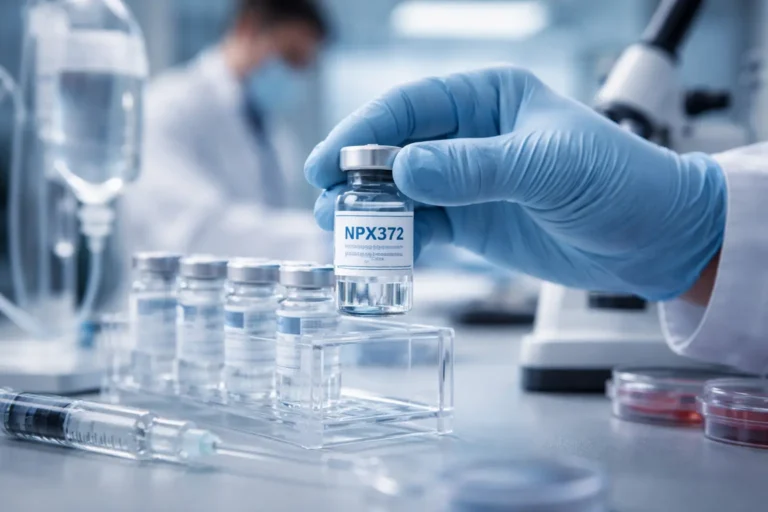
Unlearn and Trace Neuroscience Collaborate to Enhance ALS Clinical Trials
Unlearn®, a leader in AI-powered solutions for clinical trials, has announced a strategic collaboration with Trace Neuroscience, a biotechnology company specializing in genomic therapies for neurodegenerative diseases. This partnership is set to revolutionize the approach to clinical trials for amyotrophic lateral sclerosis (ALS), a progressive neurodegenerative disorder that currently lacks effective treatment options. By integrating advanced artificial intelligence with genomic medicine, Unlearn and Trace Neuroscience aim to streamline clinical development, accelerate trial processes, and ultimately improve patient outcomes.
The Significance of the Collaboration
The partnership will support Trace Neuroscience as it prepares for its upcoming Phase 1/2 clinical trial in ALS. Central to this initiative is Unlearn’s cutting-edge Digital Twin Generator for ALS (ALS DTG), which operates on the Unlearn Platform. This sophisticated technology leverages AI to model disease progression and optimize trial design, thereby enhancing the efficiency and accuracy of clinical research.
According to Steve Herne, CEO of Unlearn, “Trace Neuroscience is advancing its development program targeting the UNC13A protein, a genetic target directly linked to ALS progression, and we’re proud to support their mission by helping lay the foundation for more efficient trials and faster paths to potential treatments.”
This statement underscores the importance of AI-driven methodologies in transforming traditional clinical trial frameworks. The ability to predict disease progression through digital twin technology offers an innovative solution to longstanding challenges in ALS research, including variability in disease manifestation and the limited availability of patients for clinical trials.
Leveraging AI for Enhanced Clinical Trials
Through this collaboration, Trace Neuroscience will utilize Unlearn’s ALS DTG, a proprietary machine-learning model trained on over 13,000 longitudinal clinical records from diverse sources such as APST, PRO-ACT, and NEALS. These datasets encompass extensive clinical information, enabling the AI model to generate precise forecasts of disease progression in individual patients under standard-of-care conditions or within placebo groups in clinical trials.
The Digital Twin Generator works by creating a “digital twin” for each trial participant, based on their baseline data. This twin is a virtual representation of the patient that simulates how their disease is expected to progress without the experimental treatment. By comparing the actual patient data to their digital twin, researchers can more accurately assess the treatment’s true impact, reducing reliance on large control groups and enhancing trial efficiency.
Advancing ALS Research with Digital Twin Technology
ALS is a complex disease characterized by rapid deterioration of motor neurons, leading to progressive muscle weakness and loss of voluntary movement. One of the greatest challenges in ALS research is the heterogeneity of disease progression among patients. Traditional clinical trials often require large sample sizes and extended study durations to account for this variability, delaying the introduction of potential treatments to the market.
The integration of AI-driven digital twin technology addresses these challenges in several ways:
- Enhanced Trial Design: The ALS DTG provides insights into disease progression patterns, allowing researchers to refine inclusion and exclusion criteria for study participants. This ensures a more homogeneous study population, increasing the statistical power of the trial.
- Optimized Endpoint Strategies: The model helps identify the most meaningful clinical endpoints and biomarkers to track over time, facilitating a more precise assessment of treatment efficacy.
- Reduction in Placebo Use: By accurately modeling the expected progression of patients in the placebo group, digital twins reduce the need for large placebo-controlled cohorts, making trials more ethical and efficient.
- Faster Decision-Making: AI-driven analysis accelerates data interpretation, enabling researchers to make informed decisions about trial adjustments in real-time.
The Role of Genomic Medicine in ALS Treatment

Trace Neuroscience’s research focuses on developing genomic therapies targeting the UNC13A protein, a genetic factor closely associated with ALS. Genetic variations in UNC13A have been linked to increased disease susceptibility and severity, making it a promising target for therapeutic intervention.
According to Eric Green, M.D., Ph.D., co-founder and CEO of Trace Neuroscience, “This collaboration brings together two powerful approaches—AI and genomic medicine—to rethink how ALS trials are designed. Working with Unlearn to mine their extensive, well-curated database through the use of the ALS DTG will enable us to explore smarter designs and make confident and informed decisions as we plan our Phase 1/2 trial. Ultimately, these insights can help us to move faster for people living with ALS who are waiting for new treatment options.”
The combination of AI and genomic medicine represents a paradigm shift in ALS drug development. By leveraging digital twin technology, Trace Neuroscience can better understand the impact of its gene-targeted therapies, refine dosing strategies, and accelerate clinical progress.
Scientific and Industry Implications
The partnership between Unlearn and Trace Neuroscience extends beyond a single clinical trial. Both companies are committed to advancing scientific knowledge in ALS and related neurodegenerative diseases. As part of their collaboration, they plan to co-author scientific publications based on their findings, contributing valuable insights to the broader medical community.
Furthermore, this partnership exemplifies a growing trend in the biopharmaceutical industry—the convergence of AI and biotechnology. By incorporating AI-driven methodologies into drug development, companies can enhance precision medicine approaches, improve patient selection, and streamline regulatory approval processes.
The Future of AI-Driven Clinical Research
The success of this initiative could have far-reaching implications for the future of clinical trials beyond ALS. AI-powered digital twins have the potential to revolutionize the way trials are conducted across various therapeutic areas, including oncology, ophthalmology, and other neurodegenerative conditions.
Key benefits of AI-driven clinical research include:
- Personalized Medicine: AI models can help tailor treatment strategies to individual patient profiles, maximizing therapeutic efficacy.
- Cost Reduction: More efficient trial designs reduce overall costs associated with drug development.
- Regulatory Advancement: AI-driven insights can facilitate discussions with regulatory agencies, expediting drug approval timelines.
- Broader Application: The digital twin approach can be adapted to other diseases with variable progression patterns, such as Alzheimer’s and Parkinson’s disease.





